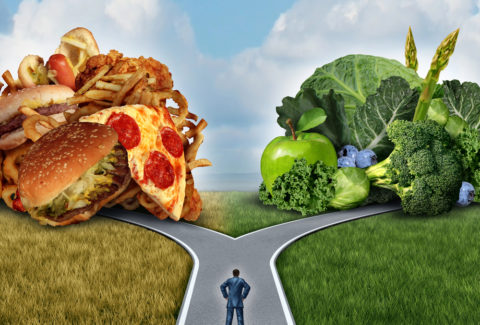Unleashing the Power of Sustainable Exercise in 2024: Practical Strategies for Lasting Impact

Unleashing the Power of Sustainable Exercise in 2024: Practical Strategies for Lasting Impact
As we stand on the threshold of a new year, brimming with resolutions and aspirations, the call to incorporate more exercise into our lives reverberates loudly. It’s not merely about a fleeting commitment but forging a lasting lifestyle change that echoes with vitality and well-being.
Define Your Why:
Before lacing up those sneakers, delve into the depths of your motivation[1]. Clearly articulate why exercise is essential for you. Is it to boost energy, enhance mental clarity, or foster overall health? Connecting with your profound “why” provides the enduring fuel needed for the journey.
Set Realistic Goals:
Start small and build gradually. Ambitious goals can be overwhelming, leading to burnout. Begin with achievable milestones, whether it’s a few minutes of daily activity or a couple of weekly workouts. Success breeds motivation, propelling you toward loftier objectives.[2]
Embrace Variety:
The allure of exercise lies in its diversity. Find activities that resonate with you—be it brisk walks, yoga, cycling, or weight training. Variety not only staves off monotony but also engages different muscle groups, promoting holistic fitness.[3]
Incorporate Micro-Workouts:
The tyranny of time often hampers our fitness endeavors. Embrace the concept of micro-workouts—short bursts of activity interspersed throughout the day. Whether it’s a quick stretch, a set of squats, or a brisk walk during breaks, these snippets accumulate into a significant impact.[4]
Cultivate Consistency:
Consistency is the linchpin of success. Establish a routine[5] that seamlessly integrates into your daily life. Whether it’s a morning jog, a lunchtime yoga session, or an evening stroll, create a rhythm that becomes second nature.
Make it Enjoyable:
If the prospect of exercise feels like a chore, it’s time to reevaluate. Seek activities that bring joy[6]—whether it’s dancing, hiking, or joining group classes. When you relish in the process, exercise transforms from an obligation to a source of pleasure.
Leverage Accountability:
Share your fitness journey with a friend or family member. Having a workout buddy not only adds a social element but also provides mutual encouragement and accountability. Celebrate victories together and navigate challenges as a team.[7]
Track Your Progress:
Keep a record of your achievements. Whether it’s logging miles, tracking strength gains, or noting increased flexibility, tangible progress serves as a powerful motivator. Reflecting on these milestones reinforces your commitment.[8]
Prioritize Recovery:
Recognize the symbiotic relationship between exercise and recovery. Incorporate rest days, indulge in rejuvenating activities like meditation or gentle stretching, and ensure adequate sleep. A well-rested body is primed for optimal performance.[9]
Celebrate the Journey:
Rather than fixating on end goals, relish the journey.[10] Every step, every workout, and every mindful choice contributes to your well-being. Celebrate the process, and let the joy of your evolving fitness routine be its own reward.
As we navigate the uncharted waters of 2024, let our commitment to exercise be an unwavering beacon of health and vitality. By infusing intention, variety, and joy into our fitness pursuits, we can stride into December 31st with gratitude, knowing that we’ve not just made resolutions but sculpted a lifestyle that nurtures our best selves. Here’s to a year of empowerment, resilience, and the transformative power of consistent exercise.
What’s Next:
- Review our previous articles in the lifestyle series.
- Anticipate upcoming content in our lifestyle mental health series, as we delve deeper into the pillars of health and wellbeing.
- Stay informed on the role of lifestyle in overall health and wellness by keeping up with the latest research and recommendations.
- Initiate more frequent discussions with your clients about their lifestyles, understanding potential barriers, and assisting them in overcoming obstacles to adopting optimal habits.
We recognize that changing habits can be challenging, but motivation is a powerful force that can be nurtured by guiding our patients through the stages of change. As clinicians, possessing awareness, understanding, insight, and knowledge about lifestyle is crucial for inspiring positive transformations. This series aims to provide you with essential tools to empower yourself and assist your patients and clients on their journey to optimal well-being.
Until our next article, let’s continue mastering the process of discovery and healing through the power of lifestyle.
[1] Rodrigues, Filipe, et al. “Understanding exercise adherence: The predictability of past experience and motivational determinants.” Brain Sciences 10.2 (2020): 98.
[2] Avishai, Aya, Mark Conner, and Paschal Sheeran. “Setting realistic health goals: Antecedents and consequences.” Annals of Behavioral Medicine 53.12 (2019): 1020-1031.
[3] Kang, Heon Jin, Chee Keng John Wang, and Stephen Francis Burns. “A case study to overcome barriers and enhance motivations through experience of a variety of exercises: Theory-based intervention on an overweight and physically inactive adult.” Case Studies in Sport and Exercise Psychology 5.1 (2021): 86-94.
[4] Fauzi, Fauzi, et al. “The impact of modified walking exercise incorporating intensity variations on increasing aerobic endurance.” Jurnal Keolahragaan 11.2 (2023).
[5] Pimm, Rosemary, et al. “Cue consistency associated with physical activity automaticity and behavior.” Behavioral Medicine 42.4 (2016): 248-253.
[6] Rodrigues, Filipe, et al. “The role of enjoyment and motivational determinants in persistence in the practice of physical exercise.” Ciência & Saúde Coletiva 26 (2021): 5303-5313.
[7] Forster, Hale A., et al. “Friends with benefits: social accountability increases physical activity.” (2020).
[8] Liu, Yangyang, Hongxue Zhang, and Ruilin Xu. “The impact of technology on promoting physical activities and mental health: a gender-based study.” BMC psychology 11.1 (2023): 298.
[9] Hayes, Sandra C., et al. “The Exercise and Sports Science Australia position statement: exercise medicine in cancer management.” Journal of science and medicine in sport 22.11 (2019): 1175-1199.
[10] Creighton, Rachel M., et al. “Group-based physical activity interventions targeting enjoyment in older adults: a systematic review.” Journal of Ageing and Longevity 2.2 (2022): 113-129.








